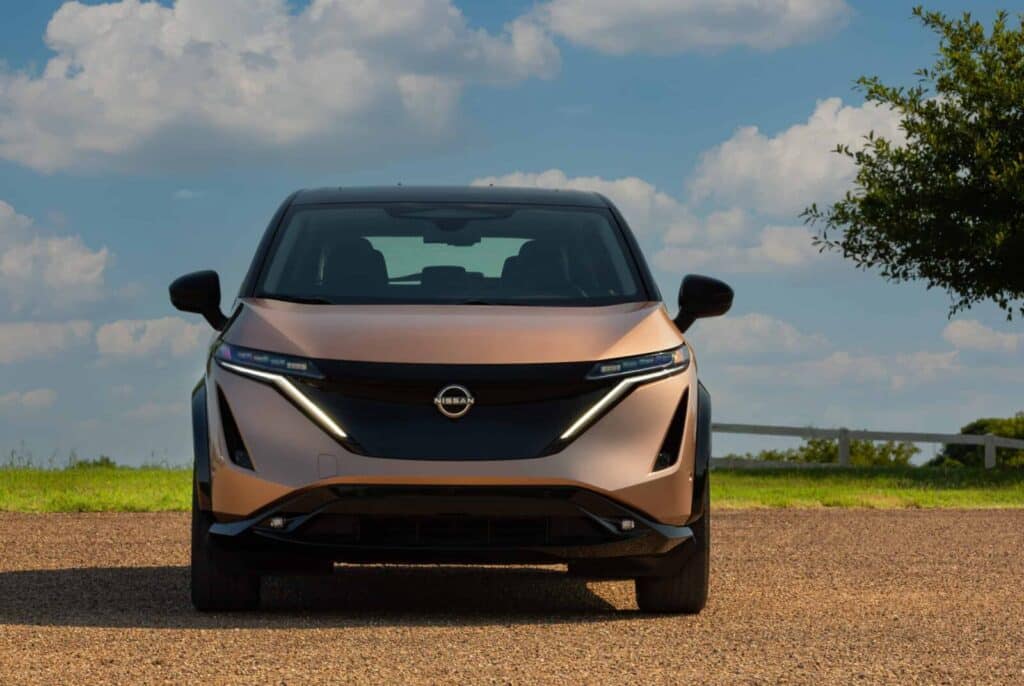Nissan EV Models Postponed, Shift to EV at Mississippi Factory Delayed
This week, Nissan Motor Company postponed a push to build five new Nissan EVs at its Canton, Mississippi, plant. Nissan emailed a statement to CNN saying:
“We are adjusting the timeline for the introduction of these five new models to ensure we bring the vehicles to the market at the right time, prioritizing in line with customer demand and maximizing the opportunity for our brands and supplier partners.”
Nissan had previously announced plans to build five new EV models in its Canton plant. Two of the models were originally scheduled for production in 2025 and included both Nissan and Infiniti (Nissan’s luxury brand) vehicles.

These latest delays were previously reported by Automotive News. Nissan said it still plans to offer a total of 19 EV models globally by 2030, an increase of three EV models from its announcement in March. The Nissan plant in Canton currently employs roughly 5,000 workers.
Highlighting its commitment to sustainable mobility, the company had announced in March its Nissan Arc business strategy. The strategy aimed to introduce 16 new electric models in three years. By 2026, Nissan targeted 40% of global sales from EVs as a part of the plan, increasing to 60% by the decade’s end.
EV Market Trends: Q1 Sales Growth Slowdown
In the first quarter of 2024, EV sales growth slowed to 2.6% in the U.S., according to Kelley Blue Book. Q1 EV sales in 2023 had outpaced 2022’s by an outstanding 46.4%.
EV demand is still growing, just more slowly. Industry experts say the sales growth slowdown is primarily due to lack of charging and high EV prices. Trouble with finding charging, particularly among multifamily dwellers, has led to a large uptick in hybrid sales.
Drivers are wanting the advantages of driving electric that a hybrid provides, while not worrying about the range anxiety that battery-electric vehicle owners can experience in areas without enough public charging available. Drivers of PHEVs (plug-in hybrid electric vehicles) enjoy greater cost-savings and eco-friendly benefits than owners of standard hybrids.

Current Nissan EV Models
Nissan currently offers two electric models: the Leaf and Ariya. At the time of this writing, the Leaf starts at $28,140, while the Ariya starts at $39,590.
With the $3,750 federal tax credit that it qualifies for, the Leaf can now be purchased for under $26,000, making it highly affordable. The Leaf was commended by NHTSA with the highest 5-star overall safety rating. However, It’s been criticized for its CHAdeMO charging. CHAdeMO-enabled public chargers can be very difficult to find, so buying a new or used Leaf is not recommended if you want to rely on public charging.
The Leaf was one of the first EVs on the U.S. market, beginning in 2010. For many years, the Leaf was the cheapest EV on the U.S. market. Nissan said the Leaf will no longer be available in the U.S. after 2025, announcing the end of production for U.S. drivers in 2024 after it dropped out of favor.
In March, the 2024 Nissan Ariya introduced reduced pricing across all of its trim levels, up to $6,000, to enhance competitiveness in the U.S. EV market. The Ariya delivers impressive output ratings ranging from 214 hp to 389 hp for different trims. The sporty SUV features an EPA-estimated driving range of up to 304 miles. Nissan introduced a NACS adapter for the Ariya, through a partnership with Tesla.

Electric Vehicle Marketing Consultant, Writer and Editor. Publisher EVinfo.net.
Portfolio: BillPierce.net
